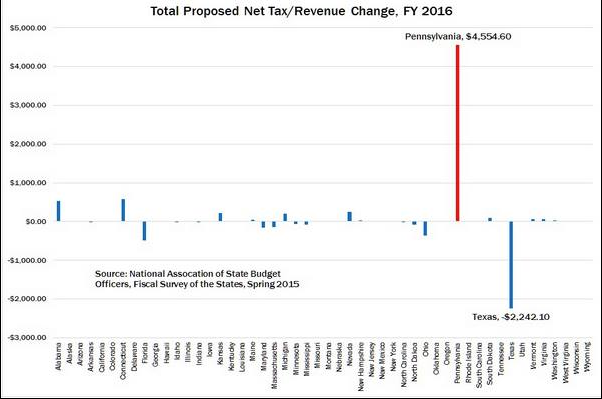I’m probably nuts for writing about education cause it’s a hyper-partisan mine-field littered with special interests and an ingrained “team mentality”. As a township commissioner I have no influence on these conversations. I have no team and I’m not interested in joining one. I just want to step outside the echo chambers for a minute.
But here goes nothing. I try hard to remain agnostic. Step away from the partisanship and just look at the big picture. To that end, you can somewhat do so since in our American education system we have 49 relatively independent systems to compare. I always go back to how are we doing vs. other states as a baseline. In the US we have 50 laboratories to study.
I also understand that the broke system we have today has in the past affected the township. This is because as we scramble to apply band-aids to a system overly reliant on local taxing bodies to sustain the unsustainable by chasing ratables we’ve made some awful land use decisions “for the school district”. As I often say it’s a rob Peter to pay Paul mentality. Low value development gives the district a band-aid windfall but hurts the township financially long term. But that’s what we get when we are constantly playing catch up. You can’t even blame the district for what is a rational response to a broken system.
So how do we fix it? First some things I know based on comparing our system to other states: (determining baselines) Often we look at PA in a vacuum. To me that is an irrelevant exercise that only serves the status quo. To do so when we have the ability to benchmark against 49 other states makes no sense.
1. Pennsylvania is among the tops in total education spending. Meaning we have one of the most expensive systems in the nation. (29 Billion dollars)
Full stop.
Again, we have one of the most expensive systems in the nation. Pennsylvania today also has some of the highest paid teachers in the nation. Not saying good or bad. I’m just saying what is.
2. Pennsylvania has one of the highest per pupil spends. (Around 15k per child)
3. But, we have one of the worse ratios of local to state contributions. Less than 40% of our ed funds come from the state. Meaning the rest comes from local taxing bodies. This is a huge issue that band-aids will not fix.
4. We also have an incredibly inequitable system. With our current broken funding formula poorest districts are hurt the most.
5. Based on education efficiency ratings, Pennsylvania is middle of the pack. Efficiency ratings measure outcomes compared to dollars spent per pupil. In other words, we spend among the most as a state but with middling results.
Based on these five items what is clear to me is Pennsylvania does not have a revenue problem. Therefore the solution should not involve the nations highest net tax increase which is the Wolf proposal. That is a solution unrelated to a problem.

Gov. Wolfs proposal represents the highest net tax increase in the nation. More and more revenue? A solution unrelated to the problem.
Other things I know: While we do not have a revenue problem, we definitely have a funding equality problem. Both state to local ratio but also district to district. We might also have a “bang for our buck” problem meaning a correlation problem. Higher spending does not necessarily mean better outcomes. There are other states that spend far less money and have far better outcomes. The Wolf budget ignores the structural problems that lead to our overly expensive (based on efficiency) system and doubles down on revenue. More and more and more money always.
There are literally a half dozen priorities that are more important than revenue. Revenue relating to total spend is NOT the problem in Pennsylvania. But there are also items Democrats are demanding that I haven’t heard Republicans willing to address. Cyber Charter reform is one example. I support school choice, but on equal funding footing.
As I’ve said in other posts I dip my toes into this topic from a viewpoint that both parties seem to have masters they are unwilling to upset. That’s a political problem we have to overcome. As I’ve also said I would support a severance tax on extraction of a state natural resource in line with other states. (a resource that we have a PA constitutional obligation to protect) But, only if it directly relates to property tax reduction on a revenue neutral dollar to dollar basis. Meaning shifting burden away from homeowners. What we have on the table today in the Governors budget is very simply the nations most extreme tax grab with some extra smoke and mirrors shell game property tax reduction.
Bottom line is structural reform means changes to the system. Not band-aids, not stop gaps, not windfalls but fundamental changes. Looking at things that are broken and fixing them. They can be transformative but also can be subtle.
Let’s get out of the echo chamber and find the middle ground. SB1 is critical reform. In some circles it already represents a compromise bill. But we must start somewhere. And we have to do it now. No signature on that bill is a non-starter since it is the structural reform we need. If that means Republicans need to cave on severance tax, so long as it’s tied to REAL property tax reduction and not a revenue grab I think it’s a deal that needs to be made.
Resources:
Teacher Salaries by state
Quality rankings of education in 50 states
Public Education finances: US Census
